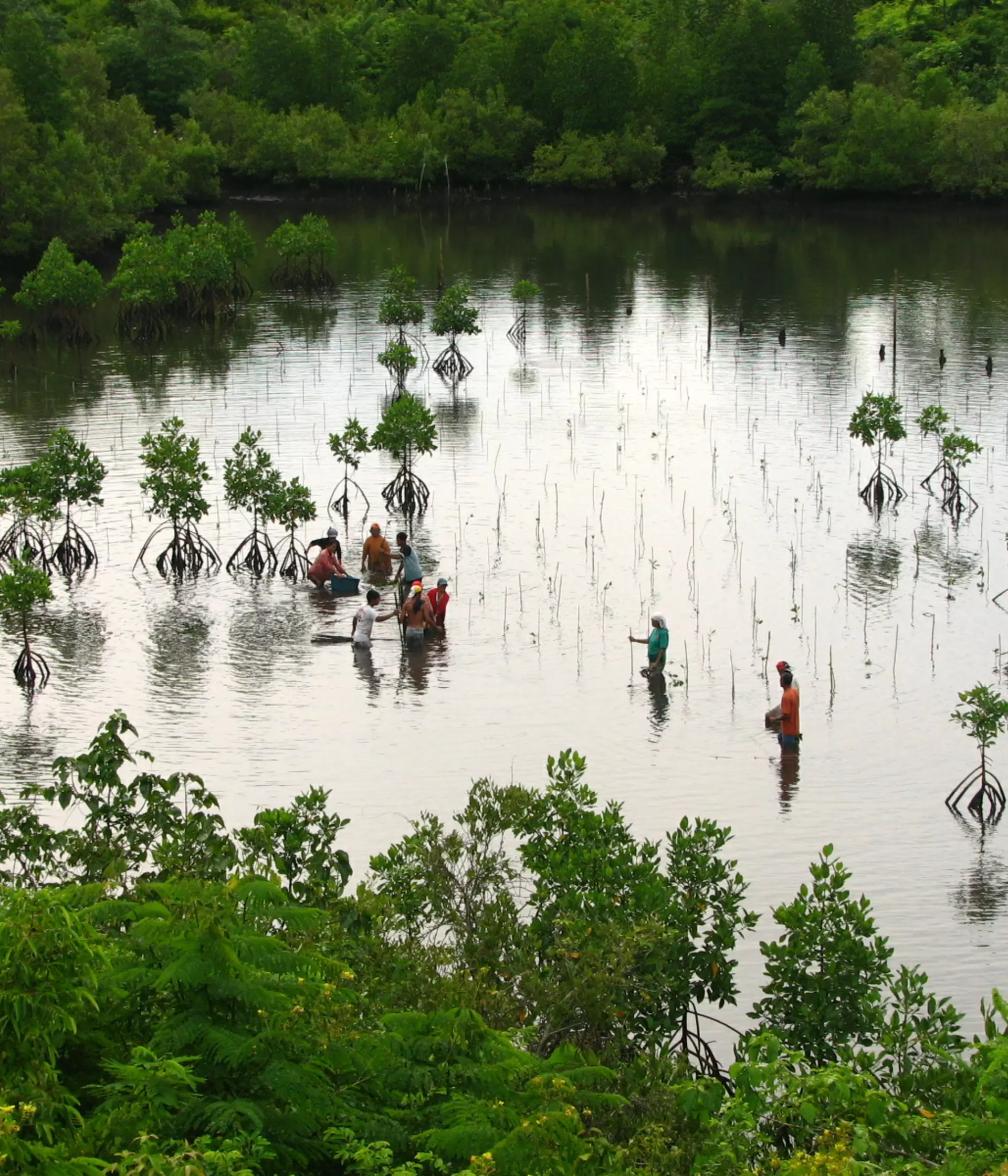Space for nature is under pressure as our own human population, and our appetite for resources, grows.
Now, more than ever, nature needs our support.
To safeguard wildlife and ensure a sustainable future, we're actively restoring habitats and collaborating with local communities to promote peaceful coexistence between people and nature.
Restoring habitats
Human-wildlife conflict is a serious challenge. We're addressing this issue head-on by working with local communities to develop innovative solutions. By providing sustainable livelihood options and conflict mitigation strategies, we're fostering a future where people and wildlife can coexist peacefully.
A healthier future for wildlife
We’re working tirelessly around the world to rebuild and protect the habitats that support life everywhere. From replanting mangrove forests to re-establishing oyster beds, our conservationists and scientists are focused on finding the best way to conserve the crucial habitats that sustain life – from forests to oceans and everything in between.
Aquatic ecosystems cover around 70 per cent of the earth’s surface.
Marine habitats are essential to the health of our marine ecosystem and our conservation work in this area ranges from teaching people how to restore seagrass beds in the UK, to restoring coastal ecosystems in Mozambique.
Freshwater habitats make up a tiny fraction of the water on Earth – only 1% of the world’s water is fresh and accessible yet sustains an astonishing 10% of all known animals and 50% of all known fish species. We work to conserve and protect these essential habitats all the way from the River Thames in London to Lake Ossa in Cameroon. At Whipsnade Zoo we have the only aquarium in the UK dedicated to conserving threatened and extinct-in-the-wild freshwater fish.
On land, habitats from forests to deserts are struggling to support biodiversity in the face of climate change and degradation.
From our work in Indonesia helping keep forests viable for tigers and elephants to protecting desert habitats in the Sahara, we are working towards biodiversity recovery.
Our conservation is always underpinned by science, and understanding ecosystems better allows us to do more effective conservation. Our scientists collaborated on the most comprehensive classification of the world’s ecosystems, describing every ecosystem across land, rivers and wetlands, and seas.
We believe that nature can recover but right now it needs our support. Together, we can restore wildlife - join us in our fight to save our natural world.
As the original science-driven conservation organisation, we’re working to restore wildlife in the UK and around the world. Discover more about our global conservation work.
Our priorities
From lab to field, in our zoos and behind the scenes, we identify and conserve the species at risk of extinction – and get them on the road to recovery.
Discover moreSharing skills and knowledge to build a movement of conservationists equipped with the expertise, tools and networks to protect and restore wildlife.
Discover moreCreating positive change for wildlife and people by inspiring and empowering everyone from children to politicians to notice, care, and act for nature.
Discover more